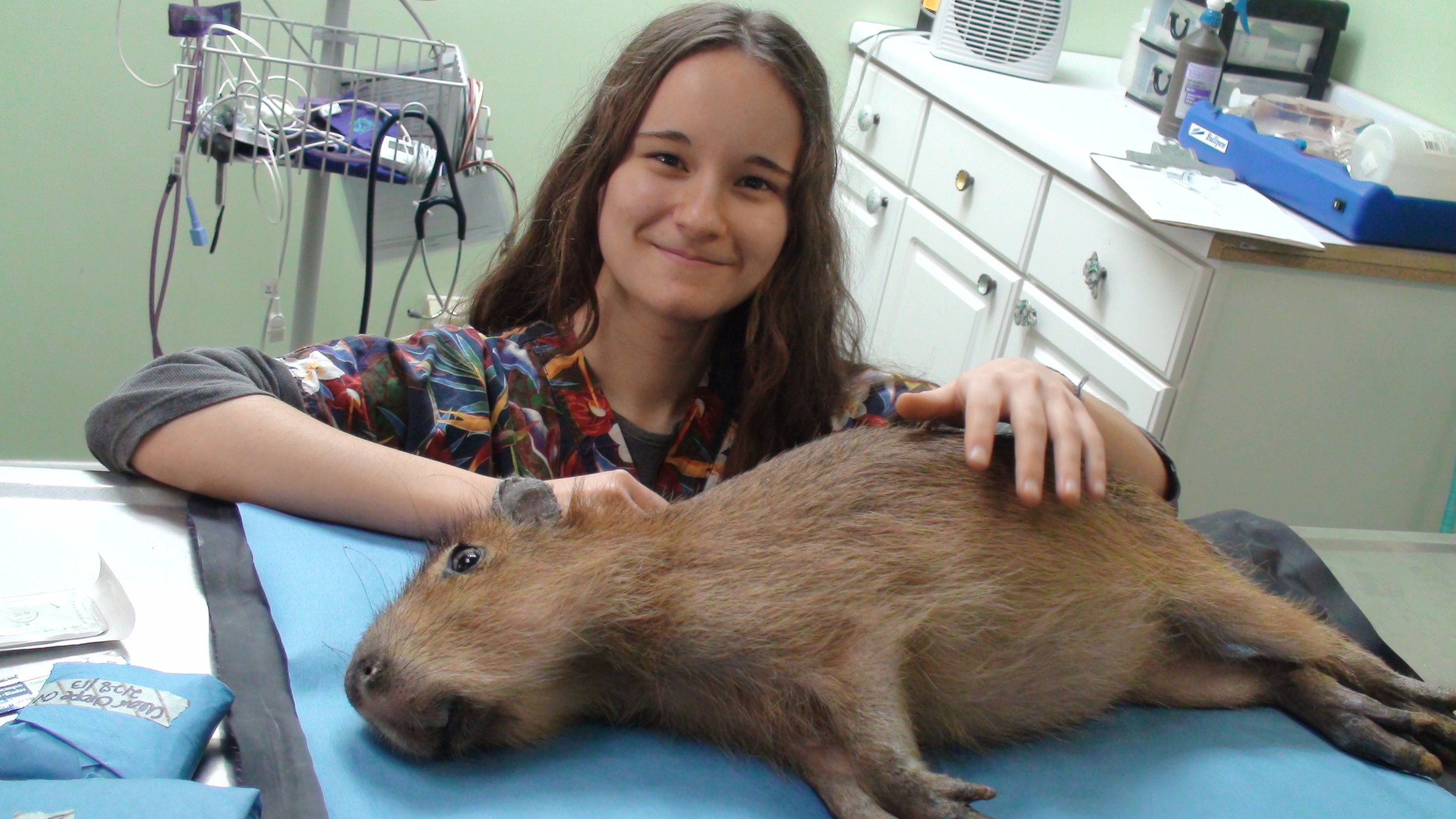Hi, my name is Sara. I am high school student from St. Theodore Guerin High School. As I  am considering becoming a veterinarian for my career, I have already begun preparing for it. Last summer I started working at the Avian and Exotic Animal Clinic, and boy, have I learned a lot! There are many things you can do now (though years from vet school) that will be very beneficial to you later. Here are some things I’d like to share with you:
There are many things veterinary schools are going to look for when you send in an application. Not only do you need good grades and standardized testing scores, colleges look for the number of experience hours you have in a veterinary clinic. How can you be a vet if you’ve never experienced working in one with real patients? The more hours you can collect, the better. Make sure to mark down every hour you do in a log you know will be safe. Personally, I go with the more old-fashioned route of a simple piece of paper, but do whatever works for you. Also, try to visit different types of clinics so you can get an idea of the different species of animals (ex: cats/dogs vs. exotics).
am considering becoming a veterinarian for my career, I have already begun preparing for it. Last summer I started working at the Avian and Exotic Animal Clinic, and boy, have I learned a lot! There are many things you can do now (though years from vet school) that will be very beneficial to you later. Here are some things I’d like to share with you:
There are many things veterinary schools are going to look for when you send in an application. Not only do you need good grades and standardized testing scores, colleges look for the number of experience hours you have in a veterinary clinic. How can you be a vet if you’ve never experienced working in one with real patients? The more hours you can collect, the better. Make sure to mark down every hour you do in a log you know will be safe. Personally, I go with the more old-fashioned route of a simple piece of paper, but do whatever works for you. Also, try to visit different types of clinics so you can get an idea of the different species of animals (ex: cats/dogs vs. exotics).
Look around for animal clinics near you and see if you can get a beginning job of just volunteer work. You will have to work your way up from the bottom of the totem pole, gaining much experience before you can get a job that pays. I sure know what this is like. Only last year I graduated from folding towels and cleaning dirty cages to more important work, such as hand-feeding patients and bringing clients into the exam room. Be willing to help in any way you can, even if it means cleaning some poopy cages. (It is actually a very important job, and the doctors greatly appreciate this being done for them so they can be free to do other medical procedures that you don’t have the training or education to do.)
As you prepare to enter high school, plan what classes you will take accordingly. To prepare yourself for the vigorous medical courses you will take for pre-vet in college, take all the Honors or high-level science classes your school has to offer. Math is also incredibly important, so if you do not have a solid handle on that, you may want to consider getting help from a tutor in that subject. If science is not your “thing”, then you either have to make it your thing or find a new career option. (Harsh as that sounds, you really need to be committed to this because it involves hard work and eight extra years of education.)
Finally, if other good veterinary opportunities come up, take them! The Purdue University Veterinary School offers an open house for their school every year in April. You can take a tour, watch demonstrations, and receive a lot of valuable information on careers in veterinary medicine. (If you are interested, look here.) It is also a great idea to shadow as many veterinarians as you can so you can be exposed to all the facets of veterinary work. If you are serious about this career choice, take the opportunity to start now learning now and take the first step. My best of luck to you!


